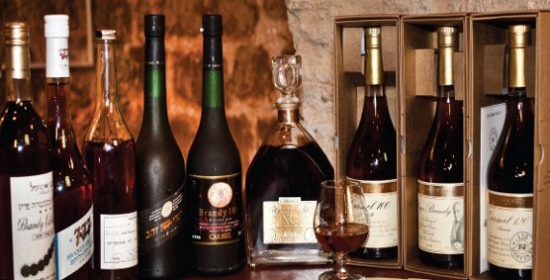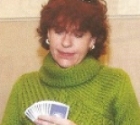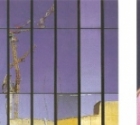
Since moving to Israel I’ve experienced and enjoyed hundreds of wine tastings. It goes with the territory of being a wine writer and sommelier. It’s a pleasant diversion when you’re offered a nice twist from the standard fare of Cabernet Sauvignon, Merlot and Chardonnay. I do appreciate fine examples of those “Noble” grapes but there are so many wineries producing those varietals that when a rarer varietal like Viognier or Cabernet Franc is offered, the contrast is noted and appreciated. Even rarer in Israel, though much more common in most other established wine regions, are examples of local brandy.
The term “brandy wine” comes from the Dutch for “burnt wine” and is a fermented wine of 8 - 12 % alcohol (most often from white wine grapes) then distilled into a finished product resulting in a bottle at a robust 40% alcohol. The unique distillation process used in making brandy can often produce flavors and aromas that transcend the original wine's profile so much so as to mask the original source of what fruit was used for the base wine. Only a few wineries in Israel out of hundreds make brandy, and the Carmel Winery has by far the largest selection, with five brandies currently readily available and with occasional special editions and cellar gems at their shop in Zichron Ya’acov.
With so little brandy produced in Israel, I was elated to be invited to a tasting at Carmel’s Rishon Le Zion facility, first for the brandy and, more esoterically, to visit the location which, at over 120 years old, is one of Israel’s oldest industrial plants. We would go on to taste nine brandies after a thorough tour. Carmel Winery has been Israel’s largest winery for over a century, but it's only producing half the wine it did 20 years ago as it has made a transition to making quality wine over quantity. In the last ten years it has received dozens of awards and reviews which attest to their progress on that journey. As its production has halved, Carmel is transitioning and condensing most of its production and operations from its two sister wineries to just one in Zichron Ya’acov with the Rishon winery for the time being retaining bottling operations for the dozens of Carmel wines that end up in 15 million bottles a year. There is another limited facility at Kayoumi in the Galilee that assists in processing Carmel’s extensive plantings in that prestigious appellation.
Now closed to the public, I had long awaited a tour of Carmel’s Rishon operations, and for me the day had a Willy Wonka’s Chocolate Factory feel and I felt like Charlie with a golden ticket being guided by Carmel’s Development Manager, Adam Montefiore. Who knows, maybe Carmel has purple-skinned Oompa Loompas working behind the scenes instead of orange-skinned chocolate laborers. Either way, a parade of nine Carmel brandies awaited us five writers as we tasted the brandies in three flights guided by Adam.
The first flight featured Carmel’s value brandies, Carmel Extra-Fine and Carmel 777. These are Carmel’s most readily available and affordable brandies, respectively priced at NIS 80 for the two-year aged Extra-Fine and only another NIS 5-10 more for the three-year aged 777. They were both pleasant, with the 777 leaning towards being a bit more fruity than the Extra-Fine. For the price, compared to other brandies in Israel, these brandies are your best bet when considering a relatively inexpensive aperitif or as a base for a Sidecar or Brandy Alexander.
Our second flight of fancy offered some rare treats and a glimpse into the potential of Israeli-made brandies. First up was a barrel-tasting of a yet to be released brandy made entirely from Muscat Alexandroni grapes. This was a deviation from the other brandies that we tasted, mostly composed of Colombard grapes (the most common wine grape in Israel, also used to make France’s most famous brandy, Cognac). As it was a cask sample it was at 65% alcohol, since with many distilled beverages, such as whiskey, water is typically added back after distillation to bring the bottled product down to a more easily consumable and fragrant 40%. Tasting it before and after adding water was illuminating and it was interesting and enticing enough to hopefully warrant its own release, as it was richer with a longer smoother finish than their value brandies, and stood up to blends we would later taste.
Next was another rare find from Carmel’s own cellars, including a taste of what may be their only bottle left of Carmel 777 Gold which was a one-off release of a six-year brandy that was my first hint that Carmel could deliver a remarkable brandy to the marketplace. The next two brandies in this flight were also rare and enticing brandies now only sold at Carmel’s visitor's center in Zichron, with only a few bottles left.
The first was a nine-year oak-aged Carmel 100 commemorating Carmel’s 100th anniversary. There are only a few bottles of this award winning brandy remaining, selling for NIS 1,500. Its flightmate was a rare 15-year aged Carmel XO available for NIS 2,200 in a special decanter bottle. Both of these brandies were expressive of white fruit, caramel, vanilla and worthy conversation starters. They may not be the best investment for a newcomer to brandy, but rather for a connoisseur or someone seeking out a special gift.
Whereas the first six brandies we tried were expressions of Carmel’s past, the last three were a taste of their future plans for releasing premium brandy: Carmel 100 (a new version), Carmel 120, and a limited edition of 300 bottles (one barrel’s worth) as a tribute to the recently deceased wine critic, Daniel Rogov. At NIS 200, NIS 550 and NIS 500 respectively, the Carmel 120 seemed to be the consensus favorite of all at the tasting, with the Rogov tribute brandy being a sentimental favorite as a way to spur a conversation about someone about whom almost everyone who met him has a story worthy of telling.
At this juncture, I don’t pretend to have the familiarity or expertise with brandy that I have been credited with concerning wine, but this tasting of Carmel’s brandies enticed me to be more curious and adventurous in the future, in that I’m a fan of any well- executed expression of grapes, whether off the vine, fermented, fortified or distilled.
 That Certain Smile
That Certain Smile Fay Shelter 1919-2012
Fay Shelter 1919-2012 Doreen (Devorah) Goldberg 1924 – 2012
Doreen (Devorah) Goldberg 1924 – 2012 Bridge the right way
Bridge the right way A Bit of Humor on Food
A Bit of Humor on Food ESRA Photo enthusiasts meet monthly
ESRA Photo enthusiasts meet monthly David Rhodes
David Rhodes